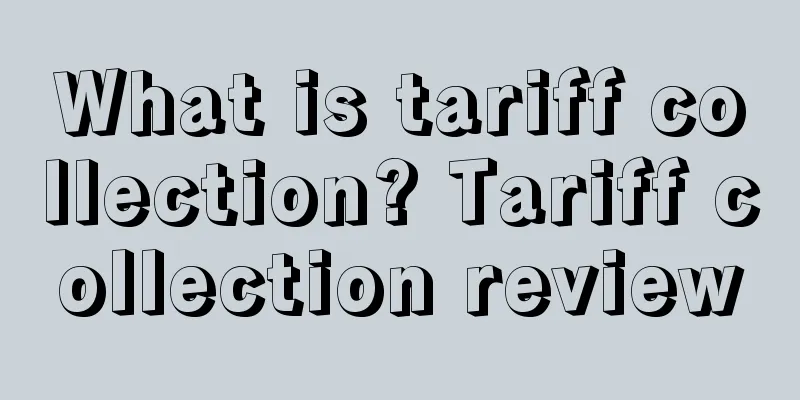Tax Compliance Guide for Cross-Border Sellers: An In-depth Analysis of the US Tax System

|
When operating in the global market, cross-border sellers must be familiar with the tax policies of various countries, especially the United States, whose tax system is complex and varies significantly from state to state. Once tax evasion is discovered, not only will they face government audits and collection, they may also be transferred to the Department of Justice or even face imprisonment. Therefore, tax compliance is crucial when operating in the United States. 0 1 Overview of the U.S. Tax System The U.S. tax system consists of three levels: federal, state, and local, with various types of taxes, including personal income tax, corporate income tax, social security tax, estate tax and gift tax, and consumption tax. With regard to corporate income tax, there are differences between the federal and state systems, with the federal government applying a uniform 21% tax rate, while the states have their own rates and tax structures. 0 2 Main types of taxes involved in cross-border transactions According to US tax laws, Chinese cross-border e-commerce sellers mainly need to pay corporate income tax and state sales tax. Although some states do not levy corporate income tax, companies still need to pay attention to the total amount of income. Corporate Income Tax As long as a company opens a store in the United States or has activities such as payment collection, it must declare corporate income tax. Even if there is no profit this year, it must declare zero. 1) Payment Guidelines
2) Interstate corporate income tax payment
State sales tax (Nexus) Regardless of whether a company is registered in the United States or China, as long as it engages in e-commerce in the United States, it must collect sales tax on behalf of consumers. The U.S. sales tax is a state tax, which is jointly levied by the state government and the local governments under its jurisdiction, and the tax rates vary significantly from state to state. 1) Tax rate principle There are 52 states in the United States (including the Special Administrative Region). Each state has different remote sales limits and different time periods for paying remote sales taxes. There are two tax rate application principles: the tax rate at the consumer's place of receipt and the tax rate at the seller's place of shipment. For remote sellers, most states apply the principle of the place of receipt. The following is a detailed diagram of the various taxation principles: However, it should be noted that five states, including Alaska, Delaware, Montana, New Hampshire and Oregon, have no state sales tax, and only Alaska allows local sales taxes to be levied. 2) Interstate sales tax When interstate transactions occur, most states in the United States collect comprehensive sales taxes based on the location of the consumer. For example, if the consumer is located in Washington State, Washington State's comprehensive sales tax will be collected. However, California, Texas, Arizona and other states implement sales tax rates based on the place of shipment. 0 3 Corporate Compliance and Tax Response Strategies How should Chinese cross-border e-commerce companies deal with the complexity of the U.S. tax system? Here are some tax compliance strategies: 1. Tax planning Do tax planning in advance and choose the right state to register and operate in to take advantage of tax incentives. 2. Professional consultation Seek professional tax advice to ensure compliance and reduce tax risks. 3. Electronic tax filing Streamline the process and reduce errors and delays by using an electronic tax filing system. 4. Pay attention to the extension policy Pay close attention to IRS extension policies and ensure that tax returns are completed within the specified time. 5. Take advantage of state tax incentives Understand and take advantage of state tax incentives such as tax credits, accelerated depreciation, and R&D tax credits. |
<<: Amazon warehouses are overflowing and TEMU is rising. How can sellers seize this peak season?
>>: Temu and SHEIN are popular in Japan. How can Chinese sellers break into the market?
Recommend
Amazon Logistics New Changes! Non-compliant shipments will be rejected
Amazon has always had strict regulations for reple...
What is iPrice? iPrice Review
iPrice is a Southeast Asian e-commerce price compa...
What is Jiji? Jiji Review
Jiji is one of the most popular online platforms i...
What is Sole Society? Sole Society Review
Sole Society is a low- priced alternative website ...
USPS Launches Local Next-Day Delivery Service for Small Shippers!
It is learned that the United States Postal Servic...
Bing Dwen Dwen was removed from shelves for copyright infringement! Actually, these ice and snow products are also delicious!
When I was young, I didn’t know the benefits of Du...
3,000 accounts were banned in 2 days! As Amazon cracks down on the price hike of masks, here is the secret of shipping 200,000 masks a day...
The global epidemic continues to heat up. Followin...
What is Sociolla? Sociolla Review
Sociolla, an e-commerce website in Jakarta, Indone...
What is WalmartPetRx? WalmartPetRx Review
WalmartPetRx is Walmart's first online pet pha...
Increase GMV and improve purchase rate! Shopify launches new localization tools!
<span data-docs-delta="[[20,"增加GMV提高购买率!Sh...
Is Amazon right for you?
Editor's Note In the near future, we will lau...
This is how advanced Amazon operations deal with FBA’s pain points!
FBA Disadvantages and Corresponding Solutions The...
What is SheIn? SheIn Review
SheIn is a cross-border B2C Internet company focus...
What is Grab? Grab Review
Grab (formerly known as Grab Taxi HolDINgs Pte. Lt...
What is the U.S. Copyright Office? Review of the U.S. Copyright Office
The United States Copyright Office (USCO) is part ...









